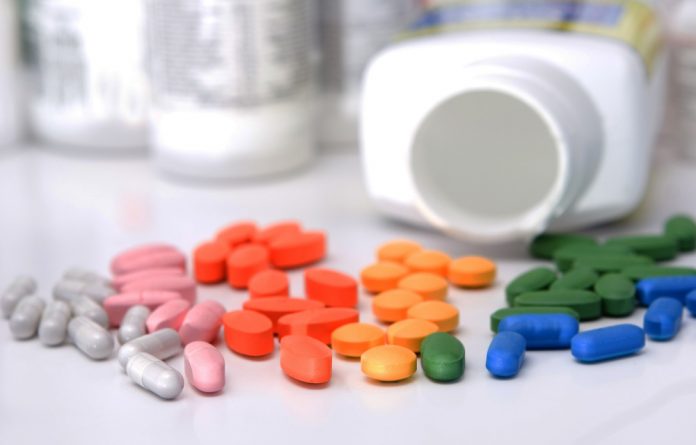Importance of erectile dysfunction (ED) treatment
Erectile dysfunction (ED) is a medical condition in which men consistently have problems either achieving or maintaining erections. While these problems can occur in anyone from time to time, ED is more than just an occasional issue with arousal. It can be an ongoing health concern.
ED affects about 30 million men in the United States. Prevalence increases with age.
Men who experience ED can have other related health issues, including anxiety and depression. They might also experience low self-esteem and decreased quality of life.
Men with ED may become even more nervous and anxious when engaging in sexual activity. They may experience continued erection problems as a result, leading to depression. Ignoring ED can even be dangerous, since it can be a sign of other health conditions.
There are a number of pills that help treat ED. Surprisingly, most men aren’t taking advantage of them. In 2013, the American Urological Association (AUA) reported that only 25.4 percent of men affected by ED sought treatment for it.
Treating the underlying cause of ED is often the most important step. Doctors are also likely to suggest specific treatments for the symptoms themselves. Find out which ED pills — if any — may work best.
Phosphodiesterase type 5 (PDE5) inhibitors
The most commonly recommended medications are called phosphodiesterase type 5 (PDE5) inhibitors. There are four PDE5 inhibitors on the market:
- avanafil (Stendra)
- sildenafil (Viagra)
- tadalafil (Cialis)
- vardenafil (Staxyn, Levitra)
They work by protecting a certain enzyme called cyclic guanosine monophosphate (cGMP). This enzyme helps trap blood in the penile tissue during sexual stimulation, encouraging an erection.
Those taking nitrate drugs for angina or using alpha-blockers to treat high blood pressure shouldn’t take PDE5 inhibitors.
In addition, men who go to the hospital emergency room for chest pain should tell their doctors if they’ve recently taken a PDE5 inhibitor. If they’re given nitroglycerin (Nitrostat, Nitro-Dur), it may cause their blood pressure to drop suddenly. It’s a type of nitrate drug.
Some common side effects of these drugs include headache, flushing, and a stuffy or runny nose.
Hormone replacement therapy
Your testosterone levels naturally decrease by small amounts as you age. However, you may be a candidate for hormone replacement therapy if your testosterone levels are too low.
A 2012 study published in BMC Surgery noted that age-associated testosterone deficiency is characterized by symptoms such as ED.
Testosterone replacement therapy (TRT) helps restore testosterone blood levels, but it’s still unclear if it helps improve ED. It likely depends on what’s causing ED in the first place.
Side effects of TRT may include moodiness, acne, fluid retention, and prostate growth.
Penile suppositories
The drug alprostadil is available as both an injection (known as Caverject or Edex) and as a pill suppository (known as MUSE).
MUSE (or Medicated Urethral System for Erections) works by causing blood vessels to expand, allowing more blood flow into the penis. You simply place the pill into the opening at the tip of the penis.
However, the medication is less effective when it’s delivered this way than when it’s delivered via injection.
According to findings from multi-center, placebo-controlled, double-blind, parallel-group studies, 7 out of 10 men were able to go through successful intercourse after using MUSE.
Side effects may include pain and burning in the genital region.
Yohimbine hydrochloride
Yohimbine hydrochloride is derived from yohimbe bark. Yohimbe bark comes from an African evergreen tree and was historically used as an aphrodisiac.
Yohimbine hydrochloride was approved by the Food and Drug Administration (FDA) as a prescription treatment for ED in the late 1980s. It’s also available over the counter.
Yohimbe herbal supplements are available over the counter as well. They’re different from yohimbine hydrochloride, chemically speaking.
Scientists believe yohimbe works by stimulating blood flow to the penis. Studies on yohimbe have seen mixed results. It isn’t known whether the supplemental extract form of yohimbe is safe or effective due to a lack of clinical trials on the substance.
Yohimbine hydrochloride can also cause dangerous side effects, such as:
- anxiety
- dizziness
- headaches
- heart attack
- increased heart rate
- increased blood pressure
- seizures
- tremors
- vomiting
You shouldn’t use it if you have a heart disease, a mental health disorder, or kidney disease.
ED and overall health
ED can be uncomfortable to discuss with your doctor at first, but keep in mind that it’s a common medical issue.
Since ED is often related to other health issues, it’s best to get a complete checkup as well as laboratory tests and a psychological exam. Treating any underlying cause will often help improve the ED as well.
The Massachusetts Male Aging Study, a landmark study, found that depression and ED are often related.
ED may also be associated with the following:
- heart disease
- diabetes
- obesity
- alcohol use
- smoking
- neurological disorders
The better your overall health, the lower the risk of ED. Discuss any of these issues with your doctor thoroughly, as well as any medications you may be taking.
Outlook
ED pills are promising, but the results vary. PDE5 inhibitors continue to be the first line of treatment, and they enjoy high rates of patient satisfaction. Your doctor might recommend another option if such medications don’t help you or they cause side effects.
If you’re interested in natural ED remedies, consult your doctor first. Never self-treat ED with over-the-counter herbs and supplements.


